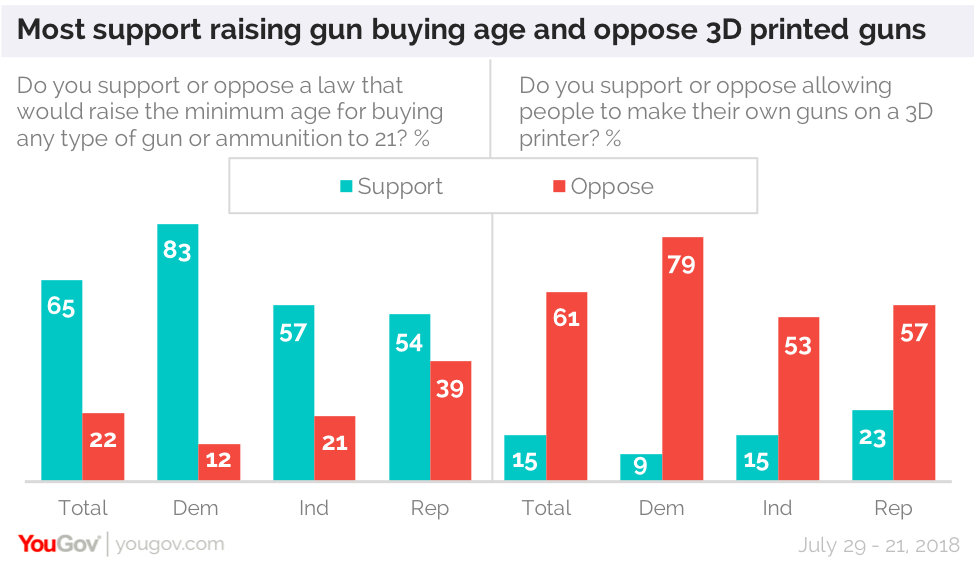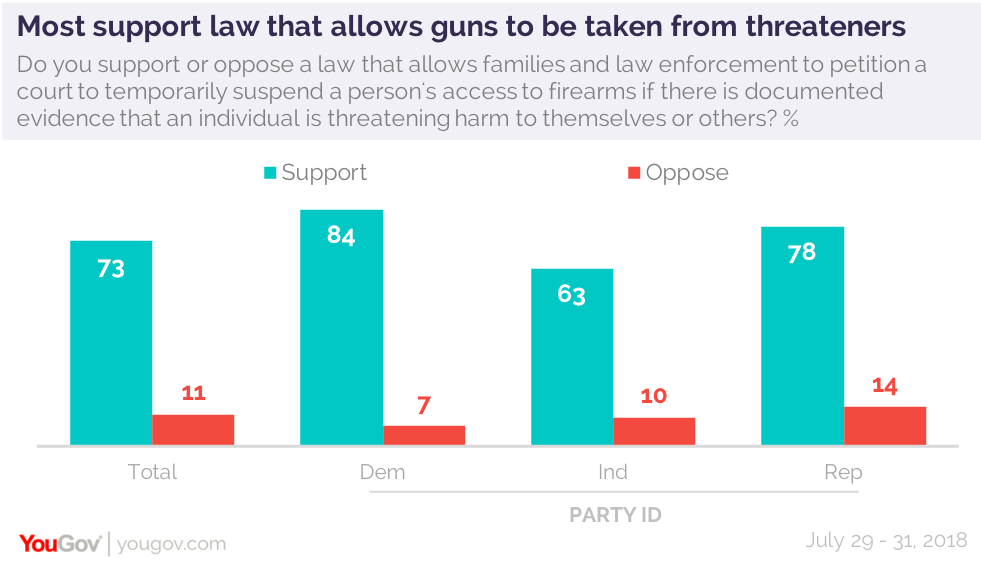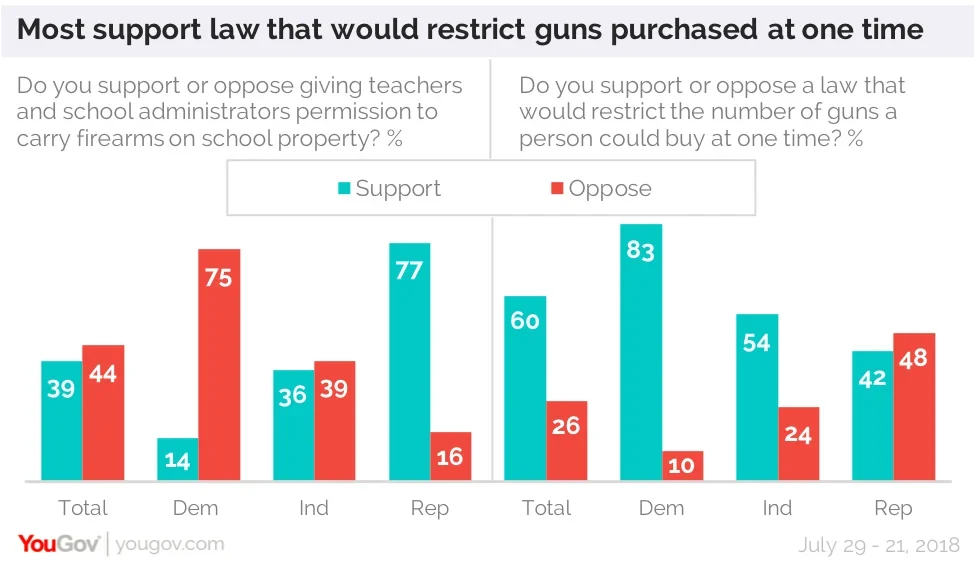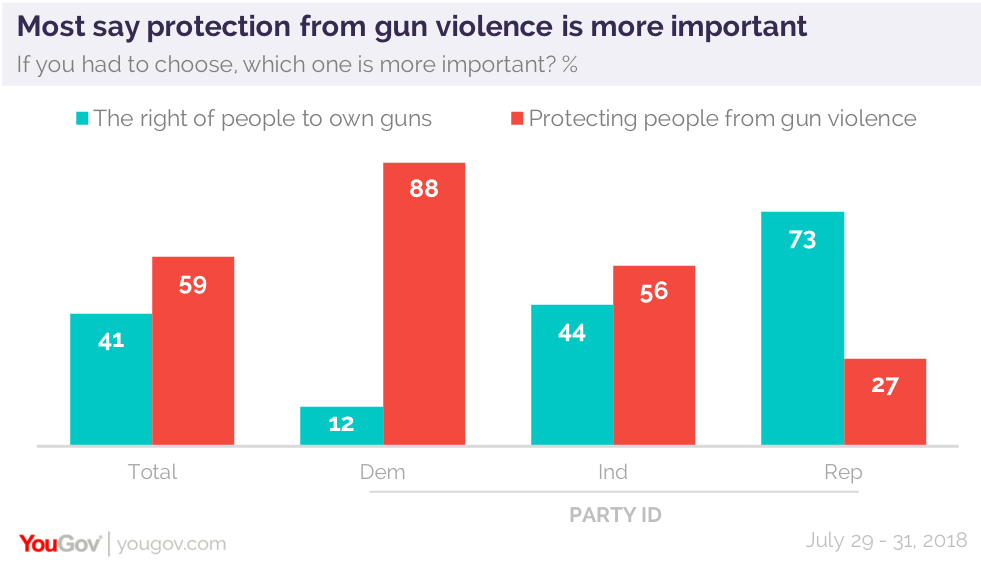But they differ on whether protection from gun violence or the right to own guns is more important
Gun control has always been a contentious partisan issue, but there is evidence in the latest Economist/YouGov Poll that there are three areas for potential party agreement.
One of those areas of agreement is raising the age for gun and ammunition purchases to 21. The second is the opposition to 3D printing of guns, which became legal after a settlement the State Department made with a Texas company that had sued for the right to publish blueprints for printing guns online. That right was to be exercised beginning August 1, but eight states sued to block publication, and on Tuesday a judge issued a temporary restraining order doing that on Tuesday, one day before the blueprints were to be available.

Opposition to allowing 3D printing crosses party lines. And the President on Tuesday weighed in, suggesting in a tweet that he was not a supporter of the decision and had spoken with the National Rifle Association. The poll showed Republicans oppose the concept. So do gun owners. 52% of those who personally own a gun oppose the 3D printing of guns, while 29% of gun owners support it. Those with a favorable opinion of the NRA also oppose 3D printing.
That settlement raises all sorts of issues, including First Amendment rights, and follows other laws that ban weapons that cannot be seen by a metal detector. Like raising the minimum age for buying a gun, opposing 3D gun printing is popular everywhere.
In March, after the Parkland shooting, Florida Governor Rick Scott signed a law that, among other things, raised the state’s minimum age for gun purchases. Part of that law was the Risk Protection Act, a “red flag” requirement that allowed the state to take possession of guns in the hands of those seen as a risk to themselves or to others. As of this week, 450 people have been affected. This is also something that all parties, including those who own guns and those who do not, support.

These three areas of agreement are exceptions, however. When it comes to other types of gun legislation, the parties are divided. Republican overwhelmingly support giving school teachers and administrators the right to carry firearms on school property, Democrats overwhelmingly do not. Democrats would restrict the number of guns someone can buy at one time, Republicans narrowly would not. There are big differences in how Republicans and Democrats look at gun control. Part of the reason is that Republicans are more than three times as likely as Democrats personally to own guns. That’s partly geographic: Democrats are more likely to live in big cities, Republicans in more rural areas. It’s also philosophical. When forced to choose between two competing positions, the right to own guns and protecting people from gun violence, the parties are on different sides. Nearly three-quarters of Republicans say the right to own guns is more important; nearly eight in ten Democrats choose protection from gun violence.









